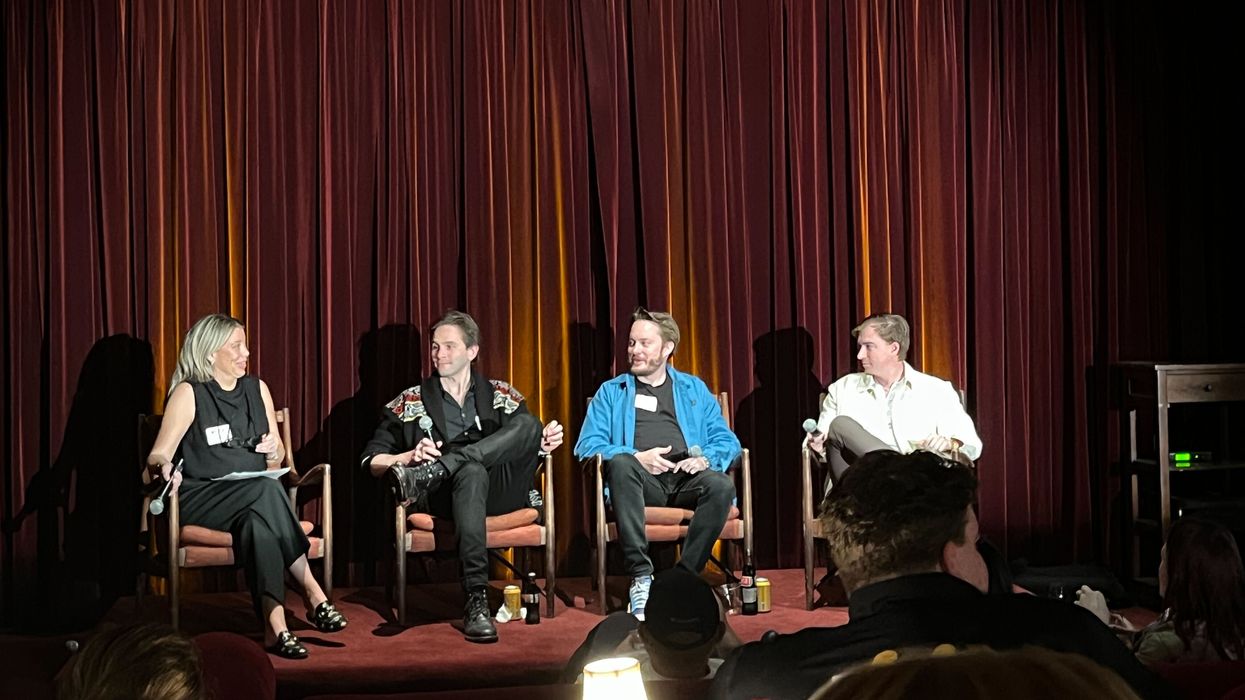'Esports Winter’ is a Myth, Local Gaming Execs Say
Samson Amore is a reporter for dot.LA. He holds a degree in journalism from Emerson College. Send tips or pitches to samsonamore@dot.la and find him on Twitter @Samsonamore.

Last year, global venture capital investment in esports dropped by more than 40%. Investors have been rapidly selling off teams and franchises, and the industry has witnessed a consistent decline in ad spend. This has prompted many critics to coin the term “esports winter,” referring to a fall-off in the industry, an indication that VCs believe their investments didn’t achieve success as expected.
A recent article in The New York Times highlighted two major esports leagues that recently divested from their teams: Madison Square Garden sold its team CounterLogic Gaming to NRG in April, while Team SoloMid sold its League of Legends Championship Series team in late May.
Arguing that the industry still has potential for growth, several gaming executives at a LA Tech Week panel said that instead of an “esports winter,” the industry was experiencing a period of “normalization.” The panel at SoHo House in West Hollywood featured Brian Anderson, CEO of Culver City-based esports outfit FlyQuest Sport, Gene Chorba, head of developer relations at Roku and Felix LaHaye, founder of United Esports.
“I'm actually very skeptical of the claim of an esports winter,” Anderson said. “I think that what I'm seeing in the market right now, ultimately, is just a lot of venture capital firms that deployed capital into the eSports space that are not generating the returns that they were looking for, and have now done the press junket and are labeling it an esports winter.”
“In reality,” Anderson said, “esports, in my view, is alive and well.”
Anderson said there were a lot of “unrealistic expectations” around esports since it became popular in 2016, and the current decline was a sign that the market was correcting itself. “This is a necessary pain point that any nascent industry is going to go through as it matures and develops, and I think that in, let's say, 24 months, 36 months, esports will be in a much better financially sustainable place,” he said.
“I think we're having a little bit of a normalization,” Chorba said. “We saw the entire economy was being shot to the moon, with nothing behind it… we were seeing valuations of companies, public and private, that just didn't make sense for what they were building.”
Other tech industries have experienced a similar “normalization” in recent years. Cryptocurrencies, NFTs and big tech have all seen a downturn in recent months after being flooded with VC interest for many years.
According to the panelists, the existing viewer base for esports was a clear sign that the industry still had potential for growth. “There's still a ton of attention on professional video games. There's still so much grassroots fan support,” Anderson said. “As long as organizations and developers are able to figure out how to actually monetize that fan base, I think esports is still alive and well and here to stay for a long time.”
According to Insider Intelligence in 2022, there were 532 million esports viewers globally, with nearly 30 million viewers in the U.S.; this is expected to increase to 34.8 million by 2026.
Chorba explained that the reduction in ad spend and brand deals in esports shouldn’t worry investors because these crucial revenue streams have slowed down for other industries as well. “Ad-supported is hemorrhaging money and really just trying to wait out what's really a bad economy right now,” he said. As more people stop paying for cable, Chorba said, eyeballs will move onto streaming sites like YouTube or Twitch to watch gaming content.
LaHaye and Chorba said that one of the reasons for the decline in esports investments could be that executives and VCs are running esports companies like tech or SaaS companies. “As a matter of fact, they are not tech companies. They are ad-supported entertainment products,” LaHaye said.
By taking their companies to IPOs too early, certain esports companies ruined their chances in the market, LaHaye added. “There's also a downswing that's done by a rush to [go] public,” he said. “There are some fairly poor business models in esports that are going through a rougher time.”
“[Game publishing] is a hit-making business,” LaHaye said. “I think there tends to be confusion between what is a fundamental issue for the esports industry itself and some business models within the esports industry being bad business.”
- How Discord and Xbox Are Working To Keep Up with AI’s Rapid Advancement ›
- LA Tech Week: Will.i.am Predicts Musicians Will Invest in Training AI to Create Hit Songs ›
- FaZe Clan is Finally Embracing Women’s Esports Over a Decade After its Founding ›
- Glytch Wants to Build 32 Esports Arenas Across the Country. The Industry is Skeptical. ›
- Esports Is Surging As High School Sports Hit Pause ›
Samson Amore is a reporter for dot.LA. He holds a degree in journalism from Emerson College. Send tips or pitches to samsonamore@dot.la and find him on Twitter @Samsonamore.





 Image Source: Tinder
Image Source: Tinder Image Source: Apple
Image Source: Apple